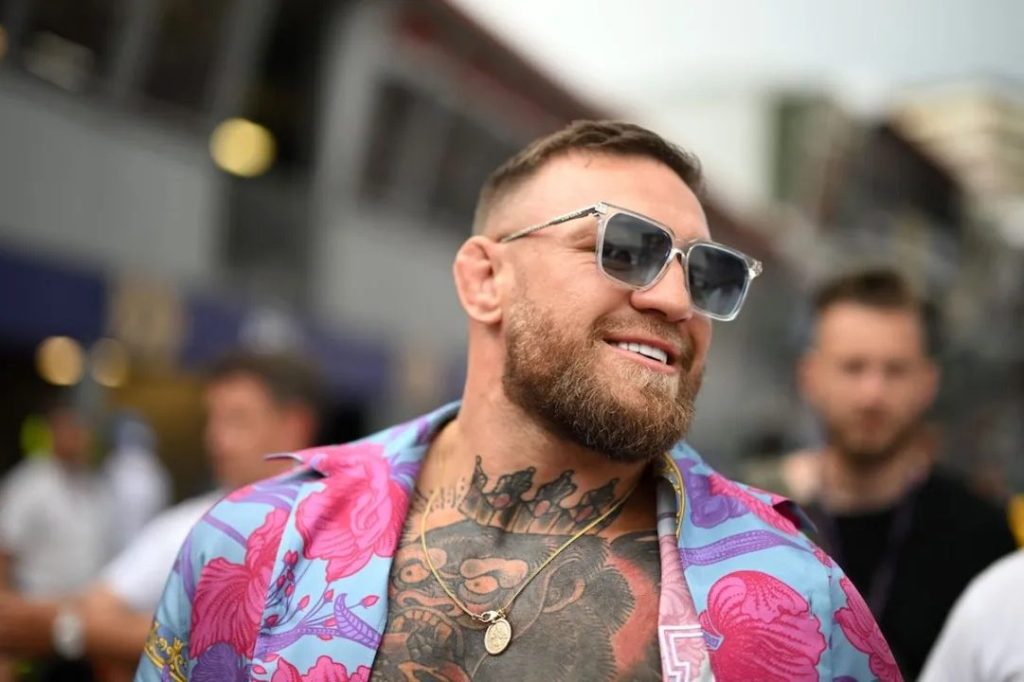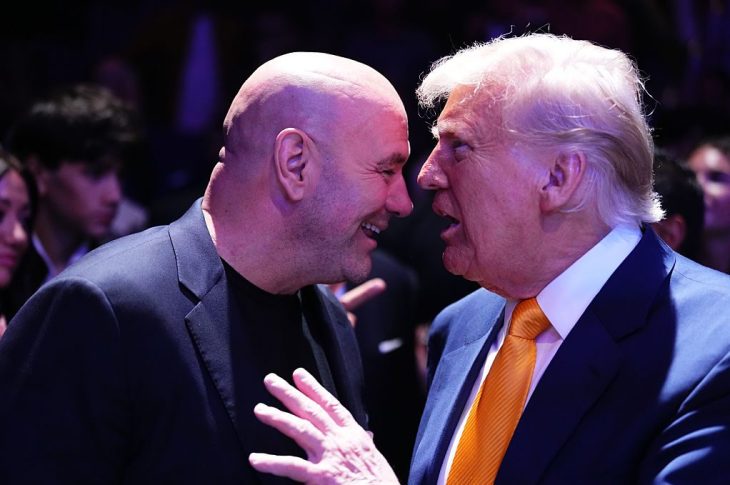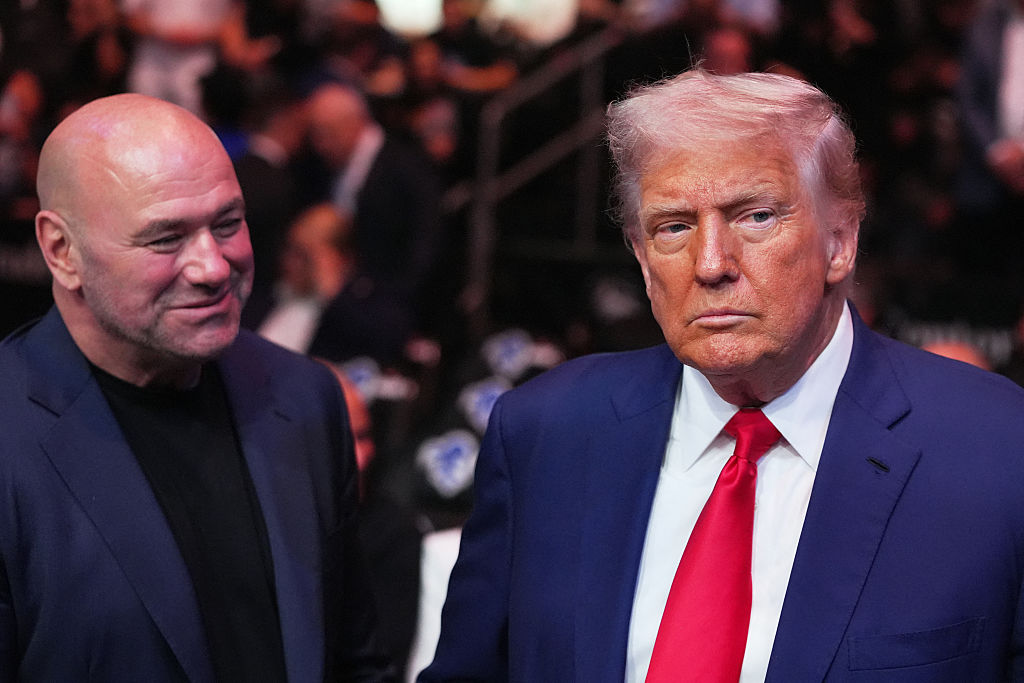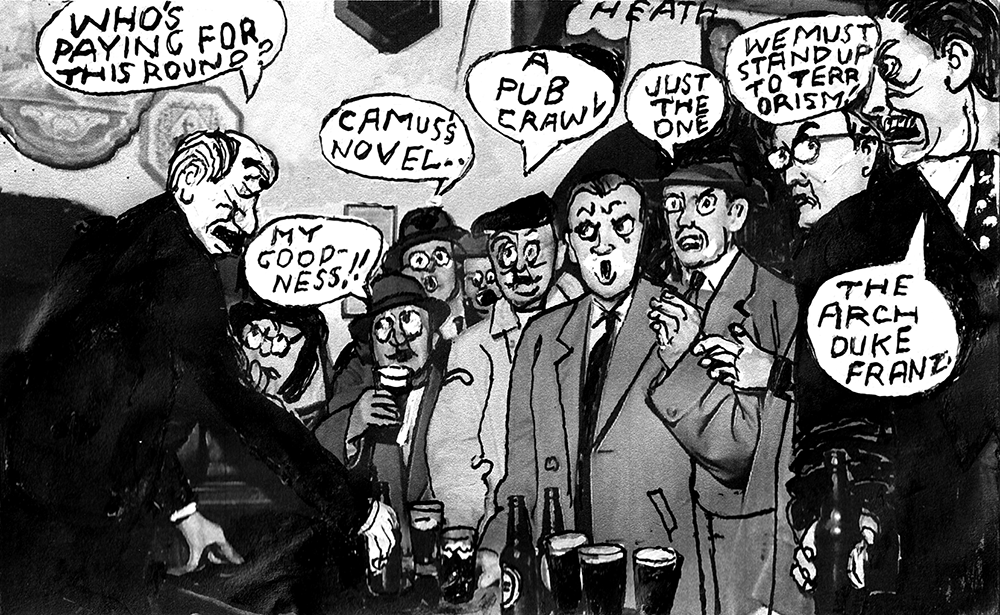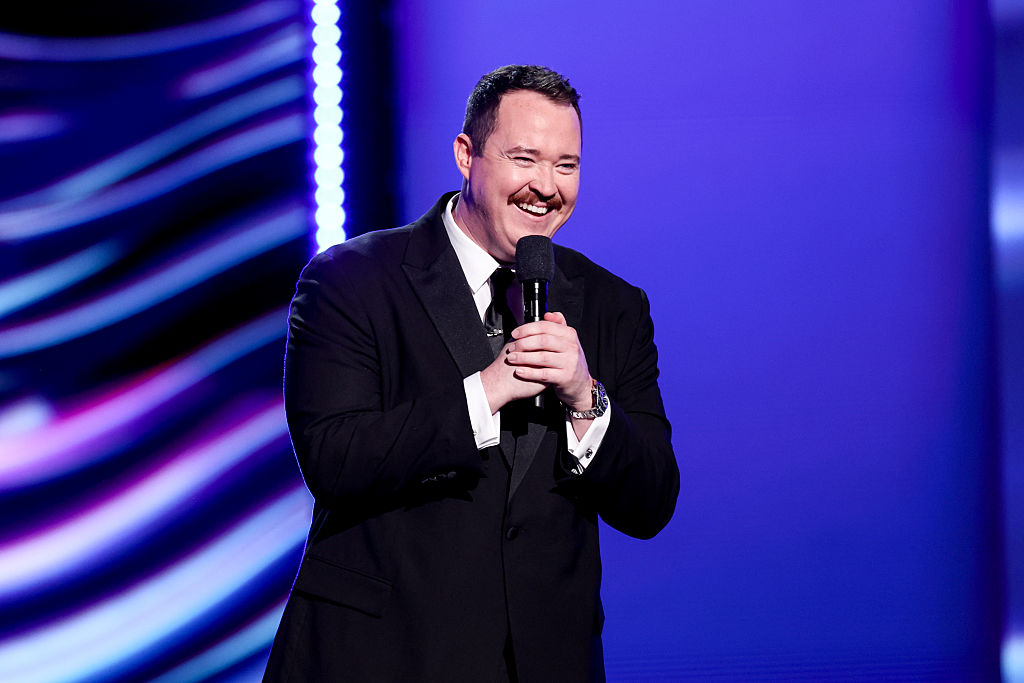The most recent UFC event, UFC 291, was a fascinating spectacle. Of all the compelling fights that took place, the final one, which saw Justin Gaethje face off against Dustin Poirier, was by far the best. Shortly after Gaethje stole the show with a devastating head-kick knockout of Poirier, Conor McGregor took to Twitter — sorry, X — to give his thoughts. More specifically, he took to X to warn Gaethje that, very soon, he would “slap” him around.
A few years ago, perhaps, such a threat would have carried some weight. It would have been met with a mixture of debate and excitement. In 2023, however, McGregor is a pale comparison to the fighter he once was. Twitter users mercilessly ridiculed McGregor, accusing him of being a washed-up has-been, a man who is forever barking but rarely, if ever, biting.
When asked for his thoughts on McGregor’s laughable threat, and whether he would be interested in facing off against the Irishman, Gaethje told reporters that he likes “to fight big fights, I like exciting things, so it sounds pretty exciting to me.” However, he added, “I’m not gonna fight someone on steroids. I’ve never taken steroids in my life, and I never will… I don’t want to fight someone who is cheating. And I probably shouldn’t even say that if I want the McGregor fight, but it’s the truth.”
McGregor denies taking steroids, and there is no evidence to indicate that he has. But what is true is that no one believes McGregor would defeat Gaethje. Deep down, if he’s being honest, Conor probably doesn’t believe it either.
As an Irishman, I firmly believe that McGregor is one of Ireland’s greatest ever sporting exports. He’s up there with Roy Keane and Katie Taylor. Nevertheless, it’s time to have an honest discussion — a brutally honest discussion — about the Dubliner
A decade ago, McGregor, then twenty-five, made his UFC debut against Marcus Brimage. He won that fight in blistering fashion, finishing off Brimage in a little over sixty seconds. A year later, in just his third UFC appearance, he headlined a main event in Dublin. McGregor scored a first-round TKO over Diego Brandão. The crowd went wild. Then, just a few months later, he scored a first-round TKO of the aforementioned Dustin Poirier. On July 11, 2015, he secured a second-round TKO of Chad Mendes for the interim featherweight belt. Five months after that, he knocked out José Aldo in thirteen seconds (the fastest finish in the history of UFC title fights) to unify the title. December 2015 was peak McGregor. Since then, by and large, it has all been downhill — a mixture of devastating injuries and devastating, even embarrassing, losses.
The McGregor of today is not the McGregor of 2015. He’s not even the McGregor of 2020, the last time he won a professional fight. Even then, that victory came against Donald “Cowboy” Cerrone, a fighter who peaked more than a decade ago.
In the years since his conquests in the Octagon, McGregor has made headlines for all the wrong reasons. When he’s not busy assaulting elderly men and smashing fans’ phones, he can be found flogging whisky of questionable quality. Today, it seems, McGregor’s name is associated with everything but actually fighting (fighting other UFC fighters, not Irish pensioners).
Sure, McGregor has a nice lifestyle brand, and sure, he recently released yet another Netflix documentary, and yes, he’s worth a few hundred million dollars. But Conor McGregor is, first and foremost, a fighter — or at least he was up until fairly recently.
A few years ago, if there was one word to describe McGregor, it would have been “emphatic.” In 2023, it’s “erratic.” If supreme athletes treat their bodies like temples, McGregor appears to treat his own like a refuse bin. He certainly has a fondness for alcohol. In February, while filming for The Ultimate Fighter in Las Vegas, a video of McGregor, one of the coaches on the show, surfaced. In it, The Notorious, seemingly inebriated, offered shots of his whisky to contestants — the very people he was hired to mentor.
In many ways, his desire to get drunk is understandable. After all, we so often drink to forget. On The Ultimate Fighter, McGregor’s performance as a coach has been, for lack of a better word, shambolic. The contrast between McGregor and Chandler, the other coach on the show, couldn’t be more stark. The latter is a consummate professional, a gentleman, someone very much dedicated to the craft. He’s not interested in Netflix shows or flash cars. He is, like all great fighters, interested in winning as many contests as possible. Chandler is consistent. McGregor is chaotic.
Throughout the entirety of the series, Chandler has offered unconditional support to his apprentices. McGregor, on the other hand, has offered platitudes, poor advice and questionable training methods.
Which leads us to the question: is McGregor done? Considering the Dubliner is thirty-five, and many MMA fighters peak in their twenties, the answer appears to be yes. Moreover, McGregor’s life is a circus. The way he lives is not compatible with that of a supreme athlete. You don’t see Ronaldo stumbling around, blabbering incoherent nonsense. You don’t see Alexander Volkanovski, arguably the UFC’s best pound-for-pound fighter, being brought before a court of law. Truly great athletes are dedicated to the craft. They eat, sleep, and breathe their profession. They don’t spend inordinate amounts of time trolling people online. Conor McGregor risks becoming a caricature of himself, a sort of mash-up between Ray Winstone and Borat, part tough guy, part buffoon.
Sure, he’s still got the swagger, and yes, he still knows how to trash talk. But fewer and fewer people actually want to hear what he has to say. Unfortunately, for McGregor at least, his days as a top-class fighter appear to be well and truly numbered.
This article was originally published on The Spectator’s UK website.



